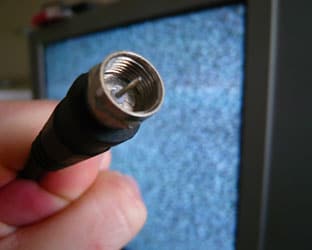CBS Corporation CEO Les Moonves told the Nomura Media Summit in New York that his company is expecting revenues from retransmission consent fees and reverse comp from affiliates to hit $350 million in 2012 and grow to more than a half billion by 2014 or ’15.
It was noted, though, that Fox is taking a hard line with affiliates and demanding 75% of the retrans cash coming from the cable and satellite operators. That’s led to bad blood between the network and many of its affiliates – and recently to Fox dumping affiliates in two markets. Moonves isn’t insisting on such a cut-and-dried formula, acknowledging that situations vary from market to market and affiliate to affiliate. But he did tell the financial conference that, in his view, network programming is the main reason for retrans being paid.
“If a station is looking at what’s really bringing in the money, it’s the NFL, it’s ‘American Idol,’ it’s ‘CSI,’ it’s the primetime strength. It’s not the local news or, you know, ‘Regis and Kelly’ at nine am, you know, that’s bringing in the big bucks. So we should have a fair share, whether it’s 75/25 – sounds a bit aggressive to me, we’ve never gone out on that basis,” said Moonves, indicating that he prefers a station-by-station approach on retrans.
The development of retrans as a second revenue stream has helped to revitalize the broadcast television business and had Moonves scoffing at people who had declared that broadcast is dying. The channels he sees as threatened now are the smaller cable channels not tied to the big content companies. “Broadcast is kicking butt right now,” he said.
RBR-TVBR observation: Let’s be blunt. It is ludicrous for Fox to claim it deserves 75% of retrans. It provides the fewest hours of programming of any of the big four networks, so its affiliates by definition have to spend more on syndicated and local programming than their competitors. If Rupert Murdoch doesn’t understand how the television business works, let him try to make “The X Factor” and “American Idol” succeed on cable.
For that matter, we’re not sure Les Moonves is totally correct in his analysis of whether network programming drives viewership and revenues for affiliates, or the other way around. There are lots of heritage stations in medium and smaller markets that greatly outperform the average for their particular network because they have long-established reputations as the news powerhouse for the market. In such cases, a weak primetime network lineup will outperform its national averages because locals are so accustomed to watching the #1 station.
The truth is it’s a two-way street. The affiliates need the networks, yes, but the networks also need the affiliates. And anyone who doubts the latter is a fool.




